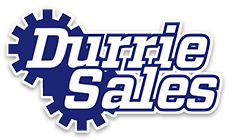It’s funny: So many industrial manufacturers pride themselves on being innovative, on finding the best solutions, and on thinking “outside the box.”
But then they just stick with the same, 20th-century way of selling.
Don’t get us wrong. We love tried-and-true approaches. But the upheaval caused by the pandemic has caused a lot of companies to get out of their rut and try something new – like outsourcing sales to an industrial manufacturers’ representative agency.
If you’re an industrial manufacturer that needs to increase revenue, you have three main options when it comes to sales:
- No full-time salesforce. If you are a small manufacturer, you may not have a salesforce, or even a salesperson. Instead, the sales function falls to someone in your firm who is responsible for something else, say the CEO, COO, or President. This option might be a good stopgap when a company is just starting out, but it very quickly becomes unviable.
- Full-time salesforce. Another option is to hire a full-time salesperson or sales team. Expect to spend at least $150-$200K per salesperson in salary, benefits, travel expenses and overhead. If you have high turnover, add the repeated costs of advertising, screening, interviewing, onboarding, and training each new rep.
- Outsourced salesforce. An even better option is to hire an outside salesforce that works on commission, eliminates the hassles of managing a full-time salesforce, and gets you up and running for a smaller investment than hiring a direct salesforce.
When industrial manufacturers outsource some (or all) of their sales to an independent rep agency, they’re typically surprised by how seamless the process is and by how outsourcing sales allows them to achieve smarter, more strategic growth.
As Bob Reiss states in his ebook, How Manufacturers and Reps Can Better Work with Each Other for Mutual Gain, “A mutual understanding [between manufacturers and sales representatives] should create a positive partnership that will yield more profits for each, while extending the duration of their relationship.”
Of course, this is assuming you choose the right industrial manufacturers representative firm. If you need guidance on how to select the right IMR firm for your business, don’t miss our recent article, 7 Things to Look for in a Manufacturers’ Representative Agency.
Why Should Manufacturers Outsource Sales to an Independent Rep Agency?
- Instant credibility and trust with your market.
- Increased exposure to new accounts.
- High-caliber reps promoting your products.
- Options for hybrid sales models – the best of both worlds.
- Easy way to implement virtual selling.
1. Instant Credibility and Trust
Building relationships with potential clients takes time, energy, and money. Send a new sales rep into a new territory, and you can expect to wait at least a year for that rep to become a trusted resource for your customers.
But when you hire a manufacturer’s rep firm, you gain immediate access to sales reps who already have established relationships with your customers. The reps who call on accounts on your behalf are already well known and trusted by those companies. You gain immediate access to that credibility and trust, shortening your sales cycle by months, if not longer.
2. Increased Exposure
Manufacturer’s representatives sell multiple product lines from a variety of manufacturers. This means you are never paying for 100% of their time when they are out calling on accounts – which is a good thing.
The product mix that a manufacturer’s representative sells is called a line card. Having a rep with a broad, diversified line card means you get the benefit of riding the coattails of all the other lines in the line card.
For example, let’s say your manufacturer’s rep is well-established as a resource for die castings, and you’re a manufacturer of forgings. Every time your rep gets a call for die castings, they can also explore whether the buyer needs forgings, vastly increasing your potential reach.
3. Higher-Caliber Reps
The good news about the best industrial sales reps is that they are well known, well respected, high-level executives. The bad news is that if you want to hire one of these sellers to knock on doors for only you, it’s going to be very expensive. And then if they leave, you’re back at square one.
You likely can’t get someone with that level of experience to work for you full time because you can’t afford a dedicated rep. But you can afford that level of expertise if that sales rep is part of a manufacturer’s rep agency, because their time – and paycheck – is shared between you and other manufacturers.
That’s the beauty of outsourcing sales to a manufacturer’s rep. You get a higher caliber of salesperson without the capital outlay in salary and benefits.
4. Hybrid Model
One of the biggest reasons why people are reluctant to outsource sales is because they like having a direct sales team that knows their brand and products, or they may have long-standing accounts that are high-touch and need full-time attention.
That’s why plenty of companies decide to get the best of both worlds with a hybrid sales model.
With the hybrid model, you retain a number of full-time, direct salespeople … and you also hire a manufacturer’s representative firm to put extra boots on the ground.
The hybrid model is attractive for manufacturers who want to penetrate new accounts, new markets, or new territories without hiring and training additional sales staff. Mc
Admittedly, the hybrid model needs a bit more coordination when it comes to management. The key is to ensure that your direct sales reps and your manufacturer’s reps aren’t competing for the same accounts or deals. When that happens, the only loser is you, the manufacturer. A successful hybrid model requires plenty of communication and clear expectations and goals. Direct sales reps and independent reps can share the same territory, as long as you encourage transparency and communication.
5. Virtual Selling
The COVID-19 global pandemic has killed the cold call. Your sales reps can’t visit potential customers unannounced. And if they want to cold-call prospects, they can’t because their prospects aren’t in the office. They are working from home.
One of the most compelling reasons for outsourcing industrial manufacturing sales comes down to a simple question: Who already has your potential customers’ cell phone numbers and email addresses in their address book? It’s not your inside sales reps. It’s the manufacturer’s rep that your potential customers already know and trust.
Your sales reps are unlikely to ever have the chance to call potential clients at home on their mobile phones. But a manufacturer’s rep can. And in this era of social distancing, prospects are more likely to hop on video calls with manufacturer’s reps that they already know and trust.
Outsourcing your sales is a big decision. But it’s one that comes with big advantages, too. You sell more, you penetrate new markets, your increase your pipeline, and you increase your revenue. If this sounds like an option you want to explore, let’s talk!


